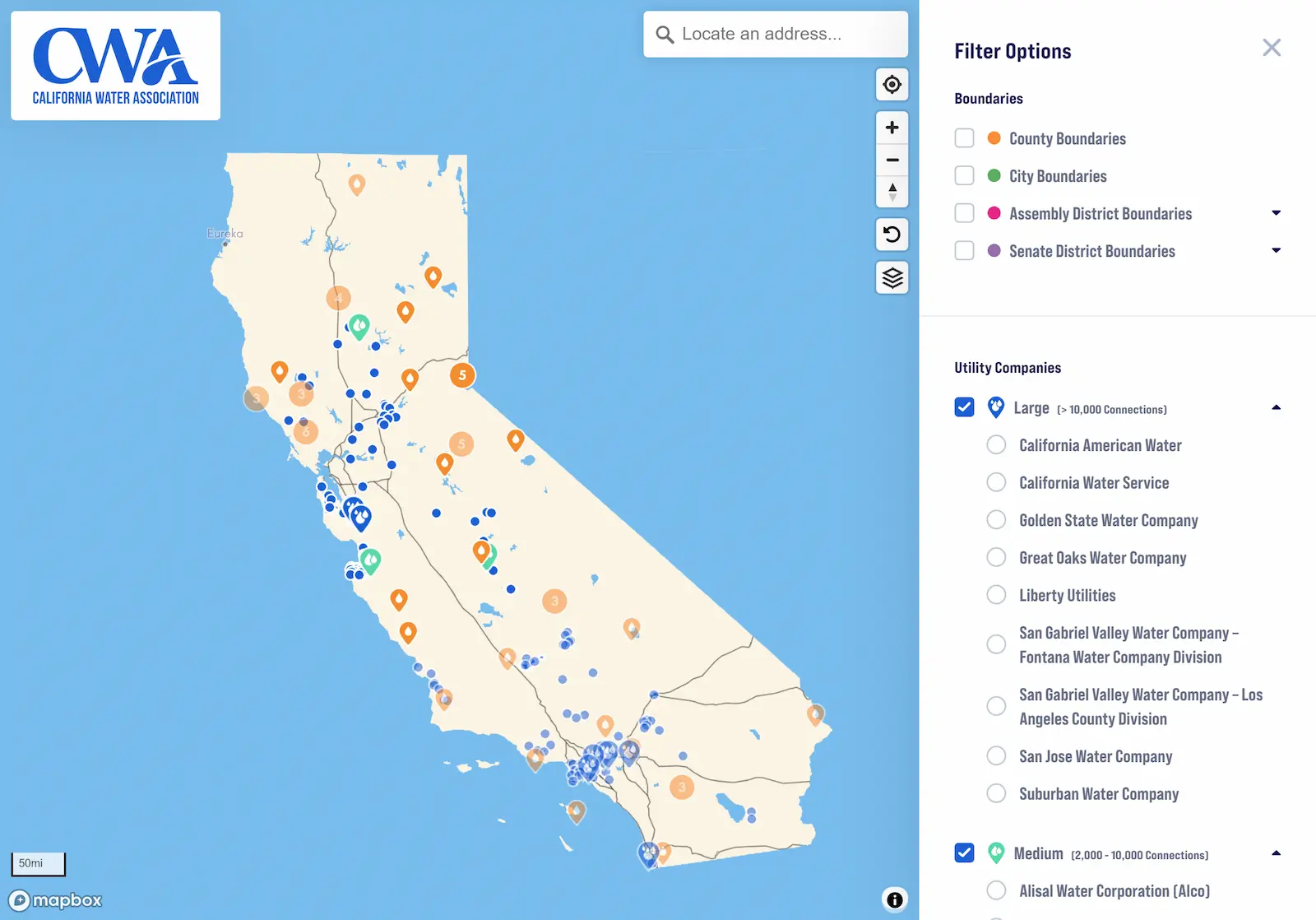In late July, the California Water Association (CWA) submitted a comment letter to Senator Hertzberg, Chair of the Senate Committee on Natural Resources and Water, on the proposed legislation to enact “Making Water Conservation a California Way of Life.” CWA also joined a coalition of 112 organizations as a signatory to a comment letter submitted by the Association of California Water Agencies (ACWA) on the same legislation. The letters addressed AB-968 and AB-1654, successor bills to AB-1667, AB-1668 and AB-1654.
CWA urged the Legislature to consider the 10 policy principles outlined in the ACWA coalition letter to enact meaningful water-use efficiency standards and drought-management planning:
- Preserve the Legislature’s authority over long-term water-use-efficiency target setting. State agencies should not be granted the authority to set and revise water-use efficiency targets. Commercial, industrial and institutional performance measures must be determined by a broad stakeholder taskforce, not state agencies.
- Ensure that any water-use-efficiency target-setting approach is flexible to account for the diversity among California’s communities and the urban retail water suppliers that serve them. Legislation [should] include alternative pathways or functional equivalents to compliance, variances and criteria for the data to be collected.
- Protect water rights and preserve a water supplier’s ability to use water it has a right to access.
- Protect and create incentives for the further development of potable reuse and recycled water.
- Provide for appropriate, progressive enforcement authority that accounts for urban retail water suppliers’ authorities and responsibilities relative to their customers. The focus should be on corrective action instead of cease-and-desist orders.
- Preserve local decision-making to determine actions to avoid or mitigate shortages. The state should not dictate what actions are to be taken at any stage or specific actions that must be included in a water-shortage contingency analysis.
- Preserve and encourage investments in resilient water supplies. Potable reuse, recycled water and desalination should all be considered fully reliable.
- Ensure that annual water supply and demand assessments are based on and accurately reflect local conditions.
- Maintain the existing legislative intent and challenge period for urban water management plans.
- Recognize that energy use is only one aspect of water supply planning.
CWA’s letter, in particular, focused on the jurisdictional responsibilities of the legislature, vis-à-vis the state agencies, with respect to the standards that will be set for water-use efficiency. CWA also stressed the need for full consideration of recycled water in the new standards and the need for the Legislature to carefully weigh the enforcement authority given to the State Water Resources Control Board. Finally, CWA noted the new regulations will necessarily lead to a further reduction in water use, causing fixed costs to be spread over a smaller demand base, thereby necessitating higher rates for customers. CWA said such an important public policy decision should rest with the Legislature.
The legislation has since been amended into identical Senate and Assembly bills (SB 606 and AB 1668, respectively). As of August 25, these bills continued to include language that wasn’t acceptable to the broader water utility community. CWA, as part of the coalition, continues to work to resolve the remaining contentious issues.




